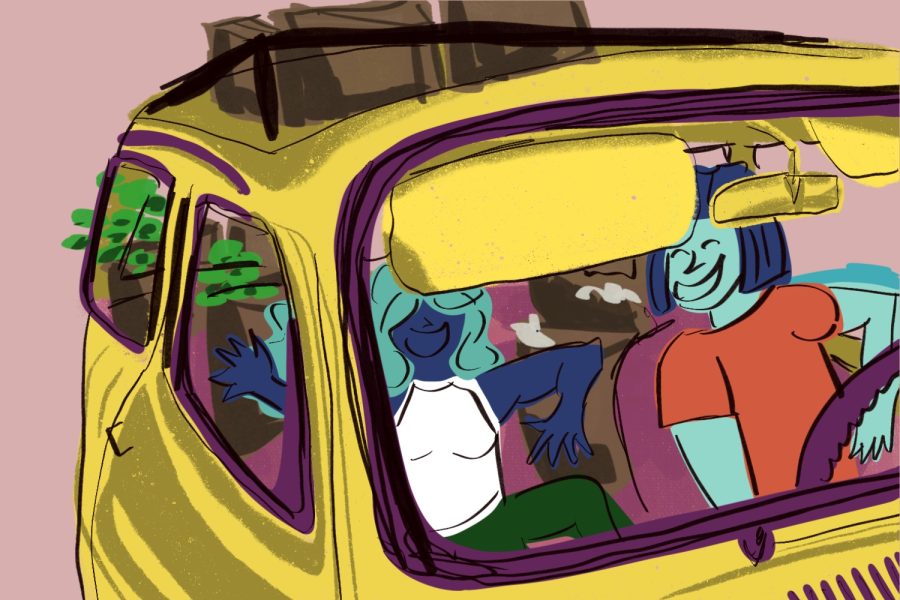Carpooling: For the planet and the people
February 28, 2023
Only about a quarter of UVM students are actually from Vermont, according to UVM’s Student Enrollment Dashboard.
Vermont produces the largest chunk of the undergraduate class. Outside of Vermont, almost 45% of students are from one of four states: Massachusetts, New York, Connecticut or New Jersey.
There is a clear trend of where the undergraduate population comes from, so it seems more than possible that many people can carpool when going home for breaks.
I recognize that just because two people live in the same state doesn’t necessarily mean they are geographically close within that state. However, even if someone who needs a ride home lives an entire hour away from someone with a car, there are many more pros than cons as to why that person should get a ride home.
Those needing a ride should try posting an Instagram story of where they’re going, along with when they’re going and how much luggage they have. Folks could also try asking around in any GroupMe chat they’re in, such as one for a dorm floor or club.
For those driving, taking a chance on a student in need of a ride might result in a new friendship. While I understand making a new bestie is a stretch, a painfully long drive home becomes a lot better with company, even if you’re not close with your passenger.
You can also take turns on AUX and share new music and artists you may like. Not to mention the benefits of receiving help with gas money—a given for anyone offering a ride home—so having an extra passenger can be really beneficial for travel costs.
One of the more obvious reasons is that carpooling is more environmentally-friendly than driving alone. Car emissions account for over one-fourth of the U.S.’s carbon footprint, according to the U.S. Environmental Protection Agency.
Reducing solo driving and opting for carpooling instead can reduce an individual’s carbon emissions by 4-5%, according to the Association of Southeast Asian Nations Climate and Energy Project.
Not only this, but some highways offer high-occupancy vehicle lanes for vehicles with two or more occupants in order to improve traffic flow, according to the City of New York. Even if someone’s destination is “out of the way” when driving home, there are genuine traffic benefits that come along with carpooling.
There is also an utilitarian aspect to this. Increasing one’s utility is a common economic practice, according to Investopedia. Rational actors in any decision will choose the option that results in the most utility.
Total utility essentially refers to the amount of benefit a consumer experiences from consuming a specific product or good, according to the University of Minnesota. The higher the utility, the greater the amount of pleasure or satisfaction they experience.
Imagine a student, who lives about 40 minutes outside of a driver’s way, asking for a ride home. The driver has two options in response.
They can say no, denying the student a ride home and thus driving by themselves. Here, only the driver gains something because they would not have to go out of their way to get home.
If the driver says yes, they might experience less utility by having to drive a bit longer than if they said no.
However, the driver still experiences significant gain from getting help with gas money, having company on the ride home, and there is added utility for the passenger who now doesn’t have to worry about how they’re getting home.
Philosophy of morals also comes into play, believe it or not. Setting aside one’s own desire in order to help someone else is truly altruistic. Altruism is the idea of sacrificing certain individual gains for increasing general utility, according to the Cambridge Rawls Lexicon.
We are taught that it is important to be selfless when others are in need—a basic concept that is learned from a young age. Perhaps giving that ride will help encourage individual morality to flourish.
Even though altruism and utilitarianism are not perfect moral theories in every case, it is difficult to argue they don’t apply here.
Whichever argument is most valid to you, use it. At the end of the day, UVM is a community. There are many benefits to helping out your community, even if it is just a ride home.
